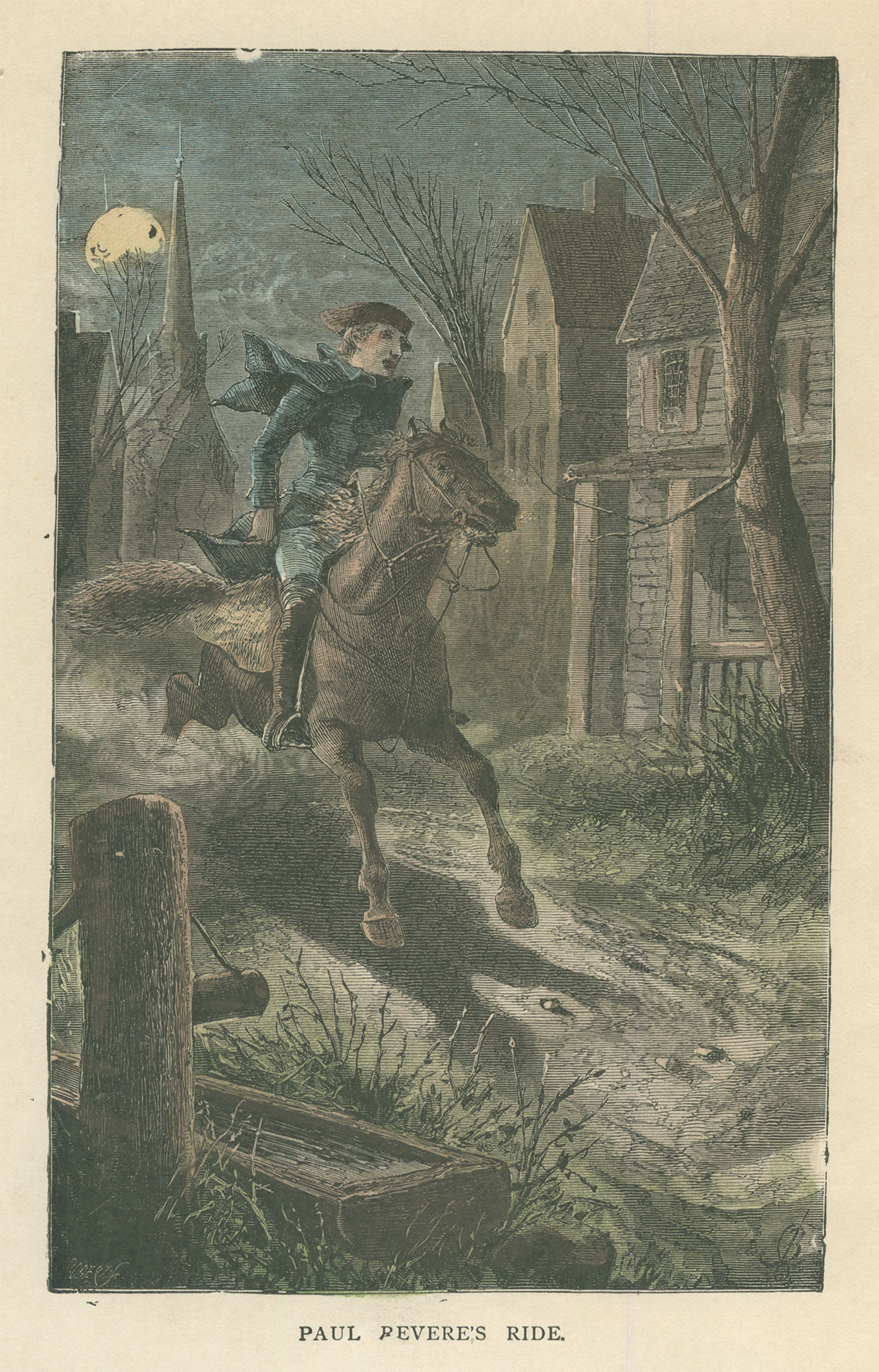This is mostly an encore post. Is there a good reason Paul Revere made his ride in the middle of National Poetry Month?
Teachers, you may want to get copies of the poems for your U.S. history and literature classes.
I like to go through the poem again on the anniversary of the event, with students taking one verse each. It builds vocabulary (try it, you’ll see), and it gives an opportunity to discuss how history threads run long; this poem was written in 1860, when the “hour of darkness and peril” was a different war, not against Britain, and not concentrated along the nation’s Atlantic coast.
You may want to note that the Boston Marathon is traditionally run on Freedom Day in Massachusetts — the day that commemorates the ride of the patriots’ warning that Gen. Gage’s army was on the move, and of the battles at Lexington and Concord, the next day.
_____________
April 18 and 19. Do the dates have significance?
Paul Revere’s Ride, by Blake. Image from Paul Revere House.
Among other things, April 19 is the date of the firing of the “shot heard ’round the world,” the first shots in the American Revolution. On April 19, 1775, American Minutemen stood to protect arsenals they had created at Lexington and Concord, Massachusetts, against seizure by the British Army then occupying Boston.
American history does not have a rude bridge at Concord commemorated, without the ride of the patriots the night before to warn the colonists. Though its history may run aft agly, “Paul Revere’s Ride” celebrates particular characteristics of Americans who make history.
Plus, April is National Poetry Month. What have we done to celebrate poetry?
What have we done to properly acknowledge the key events of April 18 and 19, 1775? Happily, poetry helps us out in history studies. Or, it can do.
Was there a time when poetry inspired a nation to save itself?
In contrast to my childhood, when we as students had poems to memorize weekly throughout our curriculum, modern students too often come to my classes seeming wholly unaware that rhyming and rhythm are used for anything other than celebrating materialist, establishment values obtained sub rosa. Poetry, to them, is mostly rhythm, certainly not for polite company, and never for learning.
Poetry has slipped from our national curriculum, dropped away from our national consciousness. No national test adequately covers poetry, not in English, not in social studies — certainly not in math or science.
That is one small part of the reason that Aprils in the past two decades turned instead to memorials to violence, and fear that violence will break out again. We have allowed darker ideas to dominate April, and especially the days around April 19.
You and I have failed to properly commemorate the good, I fear. We have a duty to pass along these cultural icons, as touchstones to understanding America.
So, reclaim the high ground. Reclaim the high cultural ground.
Read a poem today. Plan to be sure to have the commemorative reading of “Paul Revere’s Ride” in your classes on April 18 or 19, and “The Concord Hymn” on April 19.
We must work to be sure our heritage of freedom is remembered, lest we condemn our students, our children and grandchildren to having to relearn these lessons of history, as Santayana warned.
Texts of the poems are below the fold, though you may be much better off to use the links and see those sites, the Paul Revere House, and the Minuteman National Historical Park.




 Posted by Ed Darrell
Posted by Ed Darrell 






















